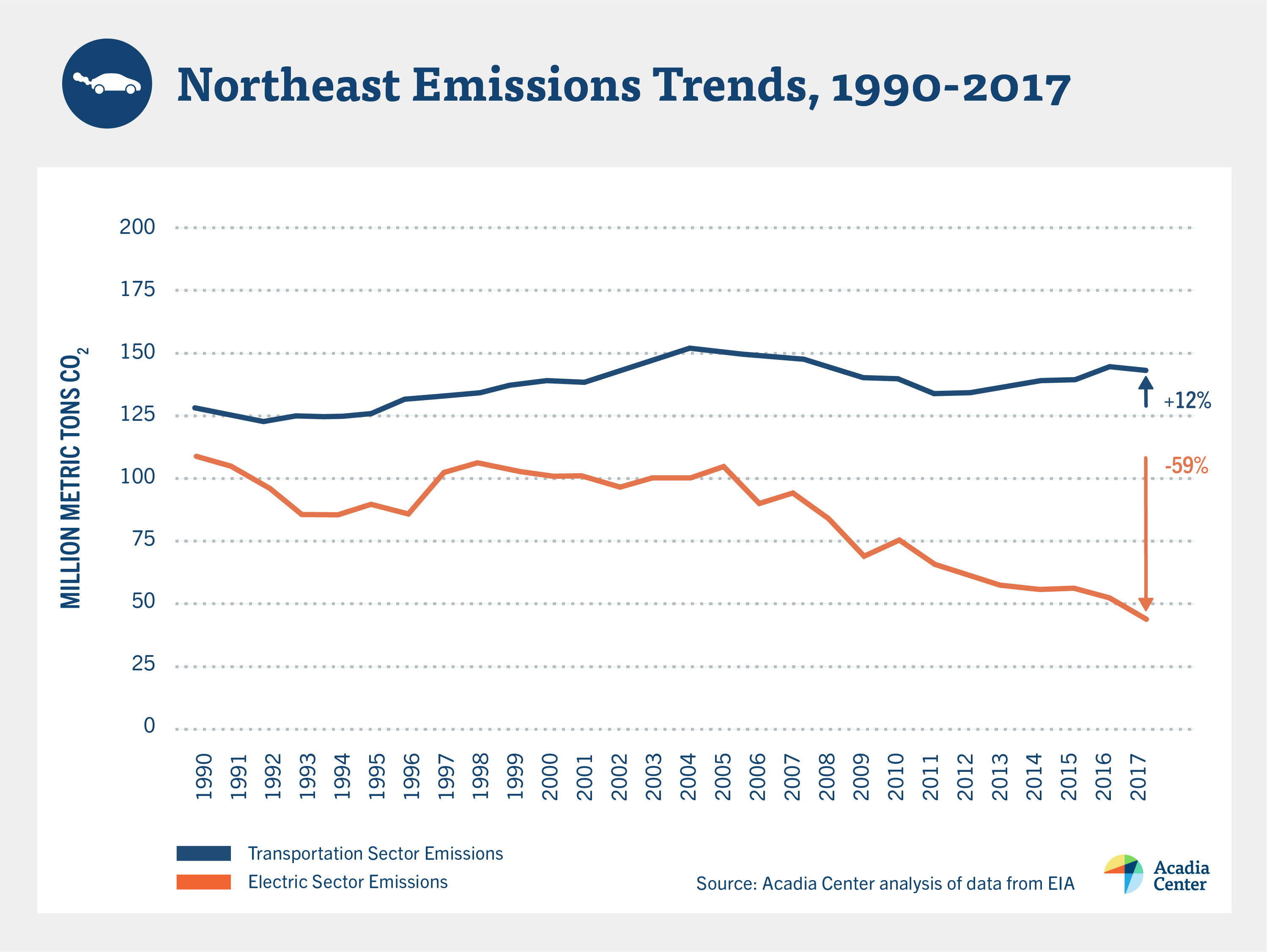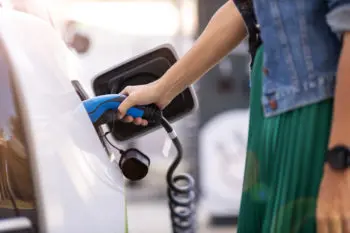Overview
States in the Northeast have acknowledged the urgency of the climate crisis, established nation-leading emissions reduction targets for 2030, and made great progress in reducing pollution from the electric sector. Unfortunately, transportation emissions in the Northeast and Mid-Atlantic region have remained stubbornly high—now accounting for 43% of total CO2 emissions—and time is running out to establish the policies necessary to achieve the region’s 2030 targets.
Beyond the urgent need for action to address climate change, our outdated and underfunded transportation system hinders economic opportunity and has devastating public health impacts. Worst of all, those economic barriers and public health costs overwhelmingly affect our most marginalized populations: low-income communities, communities of color, and the rural communities lacking mobility options. After a century of transportation decisions that have exacerbated inequalities, leading to cities segregated by highways and the emergence of transit deserts, it is well past time for investment in a just and sustainable transportation future.
Acadia Center is working to advance a suite of policies across the region that will deliver cleaner, more accessible, and more affordable transportation options that will help all of our communities thrive.

Priority Areas
Supporting Multi-Modal Mobility
Transportation investments made to-date have largely prioritized infrastructure for cars at the expense of our communities and environment. Shifting resources from car lanes and parking lots to public transit, sidewalks, bike lanes and green spaces will improve mobility options, reduce air pollution, and create more connected communities.
Accessible, affordable, and reliable public transit serves as the connective tissue for sustainable, equitable communities. Compared to personal vehicles, efficient public transit systems move more people more quickly, reduce transportation costs, alleviate traffic, produce less pollution, and allow communities to reclaim paved roadways for things people care about, like parks, restaurant patios, and bike paths. Unfortunately, public transit systems across the region are underfunded, leaving many riders with infrequent, unreliable service while many others have no access to transit at all. That lack of sufficient transit presents a major barrier between underserved communities and jobs, healthcare services, and other basic needs, exacerbating economic and health disparities. Increased public transit funding and fare-free transit can help deliver a more equitable, sustainable future.
Active transportation—primarily walking and biking—offers pollution-free mobility and substantial health benefits, but the lack of safe and connected sidewalks and bike lanes can be a major deterrent. Rather than continuing the history of car-centric investment, we should be investing in infrastructure to support active mobility and complete streets, ensuring that everyone can get around safely and efficiently whether they are walking, biking, on the bus or in a car.
 Advancing the Transition to Electric Vehicles
Advancing the Transition to Electric Vehicles
The vast majority of transportation pollution comes from vehicle tailpipes, with cars, trucks, and buses accounting for 82% of the transportation sector’s CO2 emissions. In order to meaningfully and urgently address the transportation sector’s contributions to climate change and poor air quality, a rapid transition from polluting vehicles to non-emitting electric vehicles (EVs) is necessary. Vehicles powered by electricity produce far less pollution than those running on gasoline or diesel, and as the electric grid gets cleaner, the benefits of electrification will grow. Acadia Center is working across a variety of forums to advance transportation electrification policies that are ambitious, equitable, and good for consumers.
Acadia Center uses our seats on key decision-making bodies to advocate for policies that will help consumers, companies, and public fleets transition to EVs. Through forums including the Massachusetts Zero Emission Vehicle Commission and the Connecticut CHEAPR Board, Acadia Center has worked to establish and increase rebates for EVs to help address cost barriers, while also calling for the expansion of rebate programs to include used vehicles, electric bikes, and other measures designed to expand access to electric mobility options, particularly for low- and moderate-income consumers.
Beyond vehicle incentives, Acadia Center supports electric vehicle targets and requirements as another means of shifting the market towards clean vehicles. Through the Multi-State ZEV Task Force and the recent Multi-State Medium- and Heavy-Duty ZEV agreement, states are working together to ensure that auto manufacturers and major vehicle purchasers are active participants in the transition to an electrified future. Across all of these efforts, Acadia Center advocates for the prioritized deployment of clean vehicles—like electric buses and delivery vehicles—in communities facing the worst impacts from transportation pollution.
Acadia Center also applies its expertise in electric utility rates and grid modernization in the vehicle electrification arena. Changes to electric utility rate structures can ensure that charging EVs—whether at home, at work, in town or on the highway—is good for consumers, the electric grid and the environment. For example, through time-of-use (TOU) rates utilities can offer customers electricity at lower costs when demand for electricity is low. By incentivizing EV charging when demand for electricity is low, we can ensure that EV owners save money, the grid is more balanced, and we all benefit from cleaner air and lower electricity costs because there is less need to run the oldest, dirtiest, most expensive power plants.




















